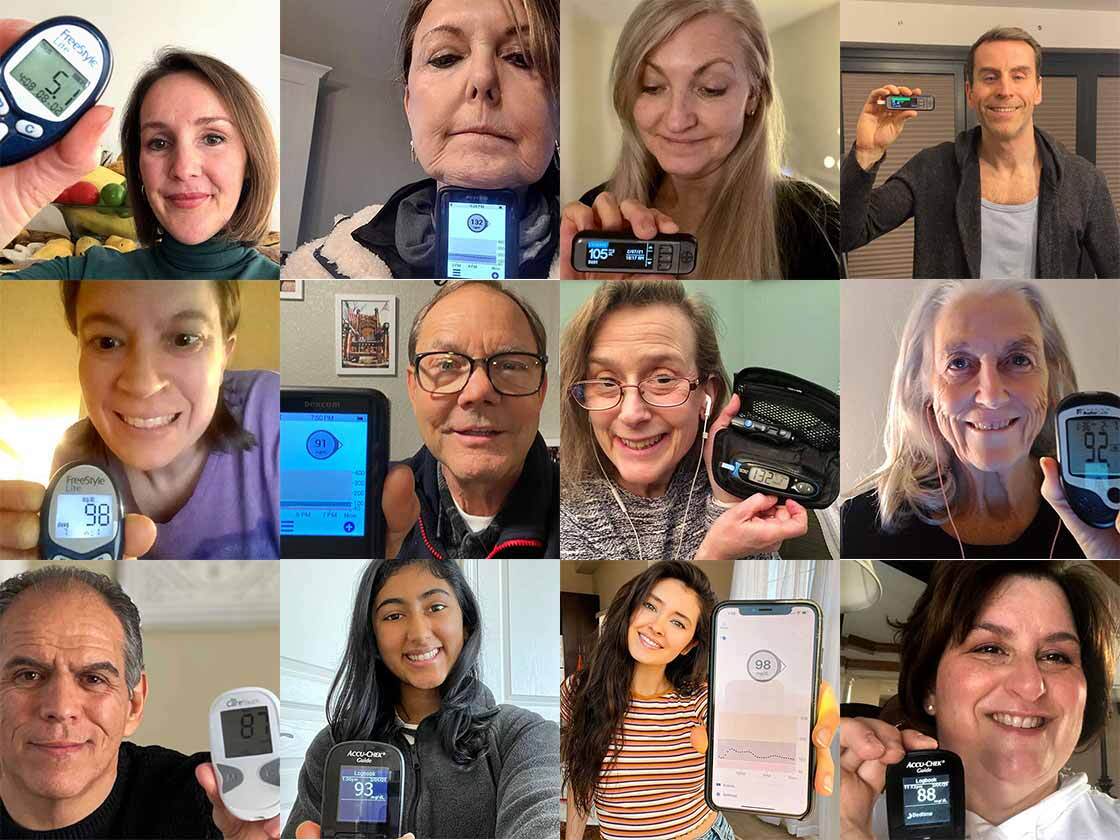Bob Blackburn served in the Marines from 1981-85 and later became a professional wrestler (The DI Bob Carter) in the WWE.
After retiring from wrestling in 1989, he developed a lifestyle of unhealthy habits, eventually leading to the diagnosis of type 2 diabetes at the age of 53 – the same age at which his own father died from the complications of type 2 diabetes.
Like many people, Bob was scared and frustrated with high cholesterol, high blood glucose, high blood pressure, and weighed 296 pounds. Candidly, he told us:
"I was just a cheeseburger and fries away from 300 pounds, and I knew I had to do something about it."
Despite this grim series of health conditions, Bob decided to make a serious lifestyle change to drastically improve his health and avoid the same fate as his father.
After learning that he could reverse type 2 diabetes using his lifestyle, Bob went home and began eagerly researching what steps he could take to turn his health around...completely.
Only 3 months after his diabetes diagnosis, Bob had lost 52 pounds, reduced his fasting blood glucose by 200 mg/dL, dropped his cholesterol by almost 40%, and lowered his A1c by 3.5%.
Here’s how it happened.
He first found Dr. Neal Barnard’s TEDx talk on YouTube. He watched the video, ordered Dr. Barnard’s book on reversing diabetes, and read the book from cover to cover.
The next day, he woke up and began eating a low-fat, plant-based, whole-food diet, just as Dr. Barnard had described.
In less than 24 hours, his life was changed forever.Bob admitted that even though he started eating a plant-based diet, he was still slightly confused about what to eat. He didn’t let that slow him down, and instead he started experimenting and becoming “that guy” searching for plant-based foods at every opportunity.
In a short period of time Bob learned how to refine his meals, and eventually began enjoying his meals more than he did at the beginning.
His medical team sent him to a diabetes education class that suggested that he eat a low-carb, high-protein diet to control his blood glucose – the same diet that he had tried in the past and found unsustainable. He decided to fully commit to this new low-fat, plant-based approach and see what would unfold.
Bob knew that to stay motivated, he first had to define why he wanted to achieve better health. With two teenage sons and a partner that loves him deeply, he had all the reasoning in the world to stay committed to improved health.
By adopting this new lifestyle, he hopes to spend a long and healthy life with his family, and not feel held back by being “sick” and overweight.
In February of 2017, Bob found out about the Mastering Diabetes Online Summit, and promptly signed up. He watched dozens of interviews with diabetes experts, researchers, and physicians, and put into practice as much information as he could.
Bob eventually found a dietitian – Kim Smith, MS, RD, who understood this dietary approach for type 2 diabetes – who helped him to understand how particular foods affected his blood glucose.
They worked together to sort through the small differences presented by these diabetes experts, and modify his lifestyle to fit his individual needs.
Through this process, Bob found that he felt his best when incorporating lots of beans and leafy green vegetables, and found himself enjoying meals that were previously unappetizing. In addition, he found that when he ate potatoes, rice, or quinoa, his blood glucose was quite difficult to control.
3 Month Results
Bob returned to his doctor’s office for a follow-up appointment 3 months after he began a low-fat, plant-based, whole-food lifestyle. Here’s what happened:
- Bob lost 52 pounds
- His cholesterol dropped 77 points (from 225 mg/dL to 148 mg/dL)
- His A1c dropped from 9.9% to 6.4%
- He was able to discontinue using insulin (approximately 20U per day)
9 Month Results
When Bob walked out of the doctor’s office following his 3-month checkup, he almost cried. Excited by excellent results, he continued eating a low-fat, plant-based, whole-food lifestyle and continued to improve his weight, blood glucose, and cholesterol.
On his birthday (July 12, 2017), he returned to the doctor’s office for another appointment after losing another 38 pounds. By this point, he had dropped his A1c to 5.9%, his total cholesterol to 125 mg/dL, his LDL cholesterol to 83 mg/dL, and his blood pressure to 106/66 mmHg.
Here is a summary of his results at 3 months (February 2017) and 9 months (July 2017):
Biomarker | November 2016 | February 2017 | July 2017 |
|---|---|---|---|
Bodyweight (pounds) | 296 | 244 | 206 |
Fasting BG (mg/dL) | 286 | 86 | 90 |
HbA1c (%) | 9.9 | 6.4 | 5.9 |
Total Cholesterol (mg/dL) | 225 | 148 | 125 |
LDL Cholesterol (mg/dL) | 155 | 97 | 83 |
HDL Cholesterol (mg/dL) | 43 | 38 | 37 |
Triglycerides (mg/dL) | 207 | 94 | 77 |
Blood Pressure (mmHg) | 130/78 | 115/73 | 106/66 |
Today, Bob is happier and healthier than he has been in over 30 years. He continues this lifestyle and his health continues to progress. He is able to keep up with his teenage sons and be present with his partner, Katherine.
Bob is a living example of how much of an effect your diet has on your overall health. When we asked him about his thoughts on this lifestyle, he said:
“I have been eating a whole-foods, plant-based, no-oil diet since November of 2016. While I don’t consider myself a vegan, I choose to stay primarily plant-based. I eat a lot of fruit, I do not count my carbohydrate intake, I watch my fat intake and I feel like a million bucks. This lifestyle saved my life.”
Lower Your A1c and Get to Your Ideal Body Weight ... Guaranteed

Your results are guaranteed. Join more than 2,000 members today
Personalized coaching puts you in immediate control of your diabetes health, helps you gain energy, improves your quality of life, and reduces or eliminates your meds.
Leave a Comment Below
Do you have a similar story? Leave a comment below and we'll get in contact with you to highlight your story next!


